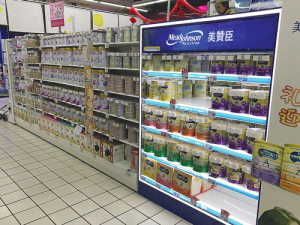Birth woes
OPINION: What does the birth rate in China have to do with stock trading? Just ask a2 Milk Company.
 Keith Woodford says NZ infant formla manufacturers would need to change the way they make the product for China.
Keith Woodford says NZ infant formla manufacturers would need to change the way they make the product for China.
New Zealand's dairy farmer leaders have been told that while global demand for milk is great, there is no future without China.
Retired Lincoln University professor Keith Woodford told the Federated Farmers dairy conference that China is where “all the markets and opportunities are”.
“Europe and the US don’t need us, Africa can’t pay for it, so it has to be Asia and that’s where all the growth is occurring,” he says.
Woodford, who has visited China since 1973, says NZ continues to lack understanding of the China market.
“We have to work with China – spend more time in China understanding how the markets work and not repeating the big mistakes we have made there over the last 10 years.”
He also pointed out that NZ’s spring calving and grass-fed system work well for long-life commodities only, not for value-added products, including infant formula.
Woodford points out that infant formula earnings in China are greater than for whole milk powder but NZ remains a small player with Synlait and Danone doing well. Fonterra has failed to make a dent in China’s infant formula market which is dominated by European processors.
He says NZ manufacturers marketing infant formula state on the cans the manufacturing and use-by dates; this may need to change.
“We talk about milk being a 48-hour asset, then it becomes a liability,” he says.
“What’s the first thing done when your milk reaches the factory? It all gets dried and goes into a storehouse; six months later when things are quieter in winter, the first thing they do is add water back again.
“We won’t be able to do that for too long; the Chinese are onto that and the only reason they are not moving right now is because they manufacture that way as well.”
Woodford says infant formula manufacturing would need to become a one-line system; the manufacturing date for infant formula will be the date milk came to the factory.
He says the industry should start thinking about how it would manufacture for such markets.
“We are the only country in the world to have this calving system; let’s start thinking about other options.”
The Meat Industry Association of New Zealand (MIA) today announced that Chief Executive Officer Sirma Karapeeva has resigned from the role.
The winners of the 2026 Hawke’s Bay/Wairarapa Dairy Industry Awards were announced at the annual awards dinner held at Copthorne Solway Park in Masterton on Thursday evening.
Environment Southland is welcoming this week’s decision by the Environmental Protection Authority (EPA) to approve the release of Blaptea elguetai, a leaf‑feeding beetle that will help control the highly invasive Chilean flame creeper.
This March, the potato industry is proudly celebrating International Women’s Day on 8 March alongside the International Year of the Woman Farmer, recognising the vital role women play across every part of the sector — from paddocks and packhouses to research, leadership, and innovation.
Fruit trader Seeka posted a record profit and returns to shareholders in 2025.
Recent weather events in the Bay of Plenty, Gisborne/Tairawhiti, and Canterbury have been declared a medium-scale adverse event.